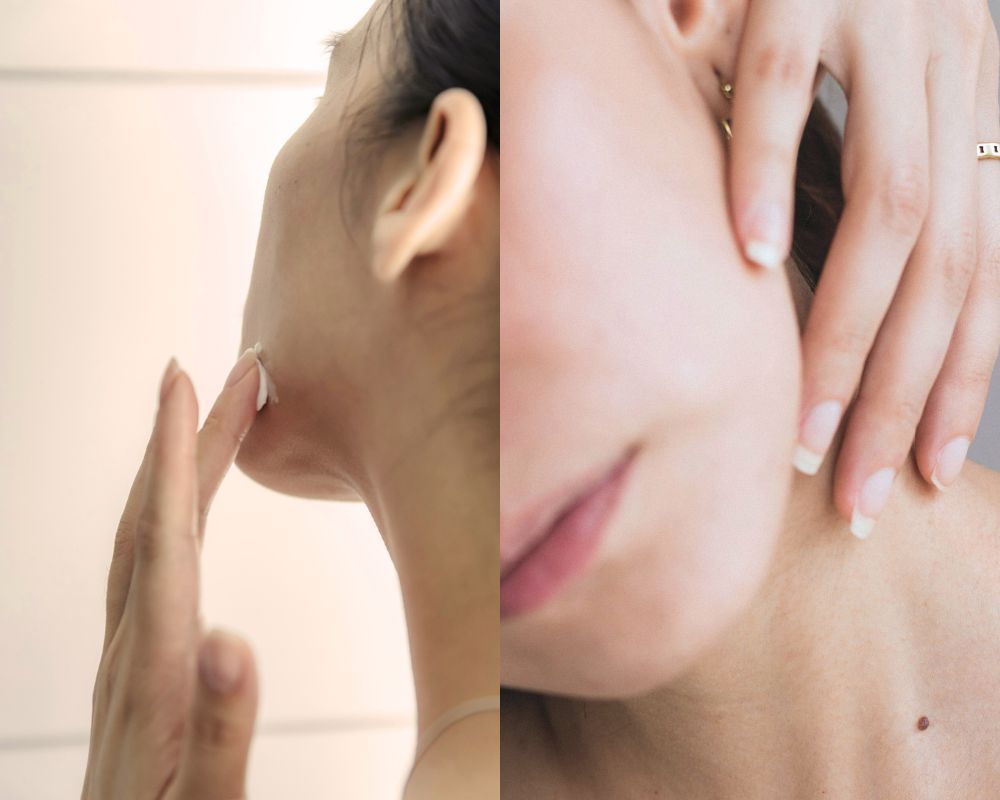7 Signs Your Skin Barrier Is Damaged and How to Repair It


Your skin barrier is more than just the outer layer of your skin. It’s made up of cells called corneocytes which are bound together by cholesterol, fatty acids, and ceramides, to form a protective shield from external factors like free radicals, pollution, and UV rays. Maintaining a healthy skin barrier is essential for skin that looks and feels its best.
A healthy skin barrier retains its hydration and helps to transport vital nutrients to your skin in order to maintain a state of homeostasis. If you have a healthy skin barrier, your skin is soft, supple, and less prone to skin sensitivity. On the flip side, when your skin barrier is damaged, your skin is dehydrated and more vulnerable to external aggressors, making your skin less resilient, and unable to repair signs of aging and post-breakout marks.
Here are some of the signs that you’ve damaged your skin barrier, as well as some treatment options like a barrier repair serum that can restore it to optimal health.
As mentioned above, when the skin barrier is compromised, your skin is more prone to water loss and irritation.
You may be facing colder weather or air quality issues that are out of your control, but there are many things you can do (or stop doing) that will help.
A common cause of a damaged skin barrier is often the overuse of harsh ingredients that are found in products such as cleansers, exfoliants, toners, and acne treatments. When your skin barrier is struggling, the overuse of retinoids, acids, and allergen-inducing ingredients like fragrances or dyes can make the situation worse. Switch to gentle and hydrating products until your skin barrier heals, and avoid aggressive exfoliation.
Especially if you have sensitive or rosacea-prone skin, you’ll need to be careful of products used so they don’t aggravate your skin further. Avoid products that contain essential oils, synthetic fragrances, and harsh ingredients that might be irritating to your skin barrier.
Your skin barrier—and your skin in general—tends to benefit from a consistent and less-is-more routine. If you’re struggling with a damaged skin barrier, keep your routine simple so your skin has less ingredient exposure (and less chances for it to become irritated!).
Make sure you’re eating well and maintaining good gut health to give your skin the best chance possible to restore itself, and do your best to limit your stress. Also, avoid tanning and use SPF to protect your skin from UV rays.
Caring for your skin barrier is one of the best ways to prevent future damage and to keep skin resilient and healthy. Here are some tips for keeping your skin barrier strong:
When your skin barrier is damaged, it can take a few weeks or even up to six months to repair. While it can be hard to resist making changes to your routine, it’s important to stay consistent with a barrier-friendly skincare routine. WIth time, your skin barrier will begin to function normally and return back to a state of homeostasis (i.e. no more redness or flakiness!).